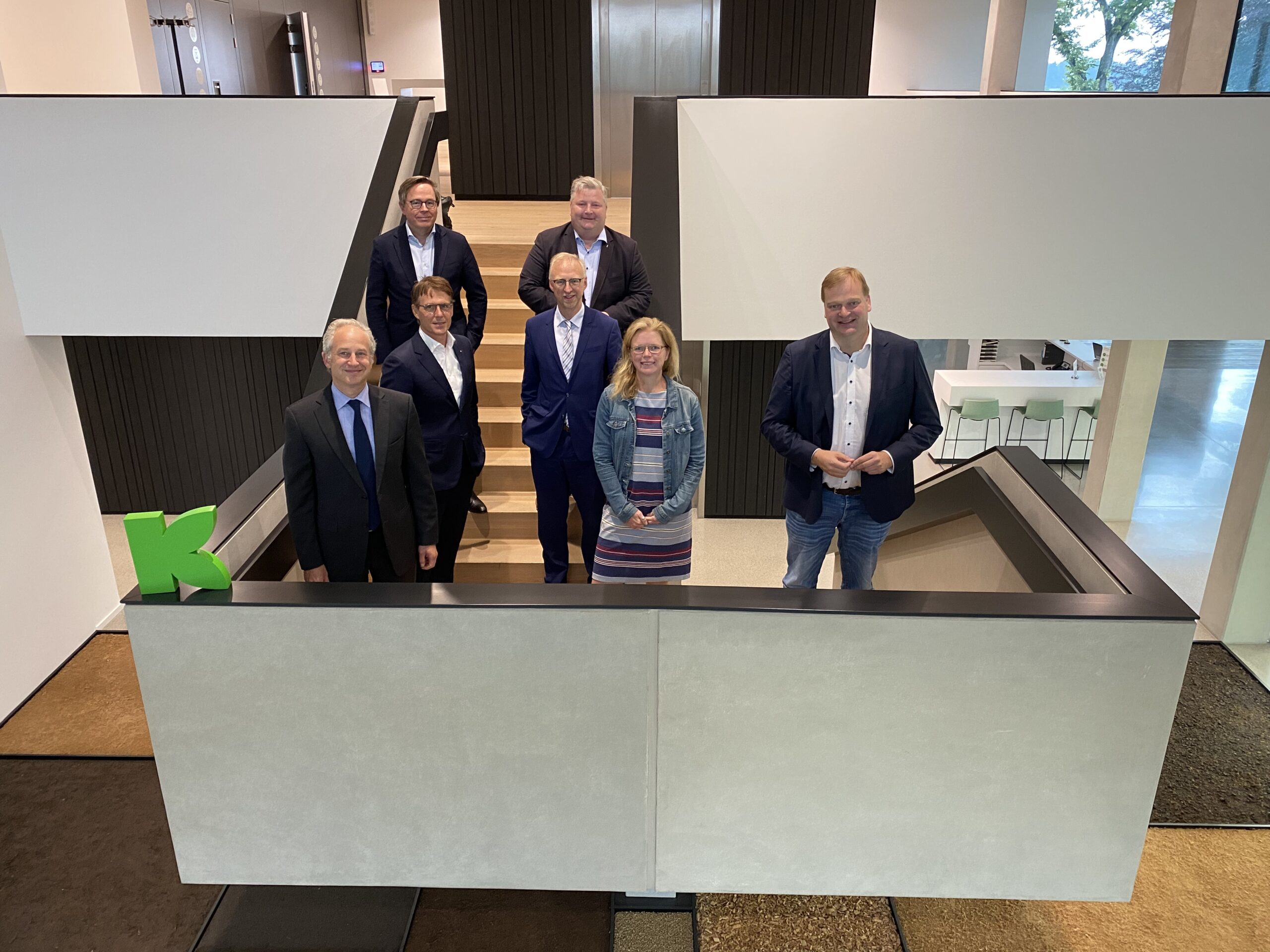Klasmann-Deilmann welcomes federal politicians
Albert Stegemann and Jens Beeck as guests at Substrate Manufacturer
“Our growing media help to secure the supply of healthy food.” Moritz Böcking, Managing Director of the Klasmann-Deilmann Group, explained the role of the substrate sector in the food industry to the visitors from Berlin. The guests included Albert Stegemann (Member of Parliament), Helmut Höke (Mayor of Geeste), and Oliver Trappmann (Sales Manager Central Europe Compo GmbH). The following day, Jens Beeck (Member of Parliament) visited the company.
Moritz Böcking explained that substrates have been available at all times, even during the Corona pandemic, to cultivate vegetables, lettuce and fruit. While international supply chains struggled with bottlenecks, the substrate industry was able to continue producing without restrictions and supply the food industry in particular. The mainstay of this was the use of domestic raw materials such as peat, wood fibre and green compost. “We are grateful to the Nutrition Working Group in the CDU/CSU parliamentary group for keeping a clear view of this state of affairs and standing up for a raw materials policy with a sense of proportion,” said Moritz Böcking. “The Corona crisis showed that we are a reliable partner to the food industry, partly because we use local resources such as peat and wood.”
Member of Parliament Albert Stegemann confirmed that the substrate industry is dependent on a balanced raw material mix to be able to fulfill its social responsibility in the future. He referred to the ten-point program of the German Federal Ministry of Food and Agriculture, which envisages a reduction in the use of peat in growing media. “At the same time, there is no question that this development will take time and that access to renewable raw materials must be made easier. The substrate industry is an integral part of important value chains. The policy here demands and supports at the same time.”
Albert Stegemann was particularly interested in peat moss cultivation, which can be used to accelerate the renaturation of former extraction areas. “The targeted application of peat moss leads to the binding of climate-damaging gases much earlier than other processes,” Moritz Böcking elaborated. Albert Stegemann concluded that “this process could also be groundbreaking for the agricultural industry in order to achieve climate protection targets by 2030. We want to shape structural change in such a way that everyone can keep up.”
Member of Parliament Jens Beeck was also interested in peat moss cultivation and therfore received a detailed report on the extensive short rotation coppice (SRC) plantations of Klasmann-Deilmann. The background was the common interest in the upgrading of claimed agricultural areas at home and abroad. Other topics included the expansion of composting plants, the construction of wind farms and the route of future power lines through central Emsland.
